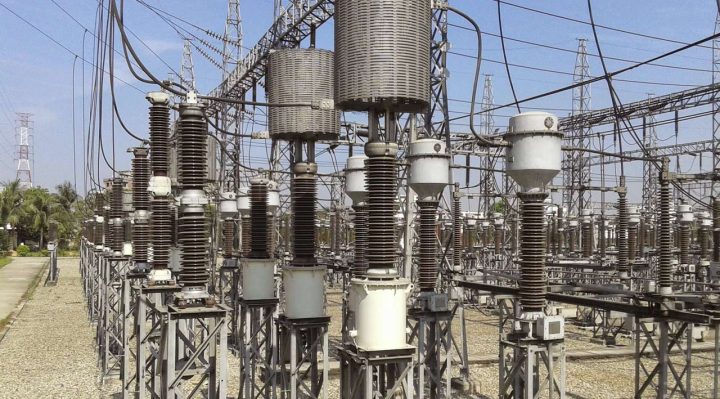Lack of power purchase agreements (PPAs) has been described as the most serious threat to the electricity market in Nigeria, even as the Nigerian Electricity Regulatory Commission (NERC) has approved a special gas pricing for emergency contracting of gas between Niger Delta Power Holding Company (NDPHC) and Nigerian Gas Marketing Company Ltd.
The Association of Power Generation Companies (APGC) has faulted recent claims by the Nigerian Bulk Electricity Trading Company Plc,( NBET) that only five generation companies (Gencos) have active power purchase agreements, (PPAs) describing such as a serious threat to the Nigerian Electricity Supply Industry, NESI, in particular, and the sector in general.
Executive Secretary, APGC, Dr. Joy Ogaji noted that the absence of PPAs as claimed by NBET entails that Gencos are exposed to the vagaries in the downstream electricity market: “The fact that NBET claims that they have only five active PPAs entails that most of the power plants do not have power purchase agreements (PPAs).
“This situation is a scary scenario for any investor as no guarantee of any sort is in place to assure any form of return on investments,” she said.
The Minister of Power, Abubakar Aliyu, in a statement in Abuja at weekend, however, stated that NERC approval was given for power plants owned by Niger Delta Power Holding Company (NDPHC) in order to optimise the capacity utilisation of the plants.
“We expect an on-grid improvement of about 800MW generation capacity from the NDPHC plants.
“In the medium-term, we have agreed with NGPIC (Nigeria Gas and Power Investment Company, a subsidiary of NNPC) on the framework for the overhaul of the Okoloma gas processing plant thereby restoring the full capacity of the 650MW Afam VI combined cycle power plant.
“While the recent spate of system collapse is regrettable, it was a direct consequence of a snap on a 330kV transmission line.
He said the mitigation measures for avoiding such incidence of blackouts are being implemented through several interventions including the Presidential Power Initiative.
The statement reads in full, “Following the emergency meeting convened by the Honourable Minister of Power, Abubakar Aliyu, on March 14th 2022 towards the restoration of normal supply of electricity supply nationwide and the development of a framework for sustainable improvement of supply, we are pleased to apprise consumers with an update on the progress so far made to address the recent challenges in the Nigerian Electricity Supply Industry.
“The Nigerian public may please recall that the national grid lost about 1,100MW generation capacity as a consequence of simultaneous disruptions in gas supply to the Okpai, Calabar and the Afam VI power plants.
“The available generation capacity was exacerbated by the ongoing water management regime at the Kainii, Jebba and Shiroro power plants.
The progress so far made includes, amongst many other initiatives, the following:
“The gas pipeline affected by acts of vandalism has been restored and the Okpai power plant has resumed power generation and currently contributing an average of 300MW.
“The Nigerian Bulk Electricity Trading Plc has been directed to enter into fast-track negotiation with NAOC (Nigerian Agip Oil Company) on an interim energy sales agreement with a view to bringing the new Okpai Il power plant on the grid thereby contributing additional 4OOMW of generation capacity.
“The “pigging” of the gas pipeline supplying gas to the Odukpani power plant is scheduled for completion on March 21st 2022 thus ramping up generation by about 400MW.
“We wish to reassure all electricity consumers that all relevant agencies involved in the restoration of normality in power supply have been charged to act in the context of the emergency state of the industry. The Federal Ministry of Power shall continue to periodically update the nation on the progress,”
Meanwhile, the Association of Power Generation Companies (APGC) has said that the inability of stakeholders to secure PPAs is the major problem threatening the electricity sector.
Emphasizing the key role of PPAs in ensuring stability in the electricity industry, Dr.Joy Ogaji, executive secretary of the association, said the assumption that Gencos are asking to be paid for electricity generation capacity instead of the actual power consumption is unethical.
She also disclaimed reports in some online media that quoted the Gencos operators insisting that the Federal Government most pay the over N1.6 trillion owned her members since 2013, hence total blackout across the country.
Many Nigerians, she said, have asked endless questions on why they pay for capacity for power they did not consume. “We have thought it wise to explain to Nigerians in a way it will be understood. Capacity Charges are fees you pay to ensure that the electricity you might use, is there for you when you need to use it. Capacity payments are global norms in the electricity supply industry and play critical roles in enabling the GenCos to optimize their power generation capacities, making such capacities available when called upon.
“In every Power Purchase Agreement (PPA), nominated capacity, metered energy, and deemed capacity are among the must-occur events.
“The GenCo makes its day-ahead declaration of how much it can generate (Available Capacity) for that given date and the System Operator (SO) nominates the capacity it can dispatch/transmit.
In every Electricity Market, this nominated capacity is paid for and with consideration for the suppressed capacity as prompted by System Operator’s instructions; a reasonable return on capital invested in the business is a critical incentive for continued improvement in technical capacity as well as the quality of service.
“Therefore, capacity payment forms a critical factor to investments, especially in servicing the debts and equity component of the costs involved.

